A veterinary nutritionist friend served as the lead author on a study of a specific dry diet for dogs going through chemotherapy -- a dog cancer diet, if you will, to look for possible effects on their quality of life. The paper published in late 2023. Let's take a look.
Here's a link to the abstract for the paper: "Effects of a high-protein, increased-fibre, dry diet supplemented with omega-3 fatty acids on quality of life in dogs undergoing chemotherapy"
The paper cites one consumer survey that found 22.5% of people change their dog's diet within 6 months of getting diagnosed with cancer. The authors speculate the incidence is much higher since this particular survey only looked at a switch from a commercial diet to homecooked or raw ... or vice versa.
Dog Cancer Diet Study Basics
Regular people volunteered their dogs with cancer for the study. All cases featured recent diagnoses of one of these canine cancers:
- MCT - Grade 2 or higher mast cell tumors (or non-resectable/incompletely resected tumors) = 13 dogs
- LSA - Multicentric lymphoma = 33 dogs
Researchers enrolled 46 dogs and randomly selected the dogs to receive the test diet (24 dogs) or the control diet (21 dogs) for 8 weeks.
Client-owned dogs were enrolled from the Harrington Oncology Program at the Foster Hospital for Small Animals, Cummings School of Veterinary Medicine, Tufts University in North Grafton, Massachusetts, and four private oncology practices in Massachusetts and New York between July 1, 2014, and February 29, 2016. These things take a lot of time and money to evaluate.
Outcomes Measured?
The team measured these outcomes:
- 12 factors from quality-of-life (QOL) assessments
- Degree the dog was bothered by the cancer
- Changes in sleeping habits
- Frequency of anxiety or fear
- Frequency of signs of illness
- Frequency of pain/discomfort
- Frequency of mobility issues
- Frequency of enjoyment of favorite activities
- Appetite
- Playfulness
- Enjoyment of human interaction
- Happiness
- Overall quality of life
- Fecal scores
- Blood concentrations of C-reactive protein and monocyte chemoattractant protein-1 (inflammation markers of dogs receiving chemotherapy treatment)
Families completed quality-of-life surveys at enrollment and then every 2 weeks. It's an important consideration for many people when choose chemo treatment (or not) for their dogs with cancer. Oncology teams also drew blood from participating canine cancer patients at enrollment in the study, at 4 weeks and at 8 weeks.
Results from This Dog Cancer Diet Study
Of the 46 dogs enrolled, 36 of them completed the study:
- 14 eating the control diet
- 22 eating the test dog cancer diet
Here's the quality-of-life data, if you want to dig into the details. This much tiny data makes my eyes squinch. I think if you click on the image, you can make it bigger to read more easily.
Here's how the authors summarize the results: "Of 12 QOL parameters, 10 significantly improved from baseline to Week 8 in the test group compared with one in the control group. However, differences between the two groups were only statistically significant for ‘frequency of signs of illness’ (P = .009). There were no significant differences in the incidence of any adverse events, including gastrointestinal adverse events or clinically significant differences in laboratory parameters or faecal scores between the two groups. The absence of an observed negative impact of the test diet, combined with the magnitude of QOL improvements associated with the diet, suggest that a larger trial is warranted."
Key Points From the Study's Lead Author / Researcher
With things so hectic around her lately with foster puppies and such, I asked my pal for some keen insights on this dog cancer diet study to be sure I shared the most important information and any caveats. Here's what Cailin R. Heinze, VMD, MS, DACVIM (Nutrition) told me via email. Neat, yes?
"I think the biggest takeaway is that while we have no evidence that specific dietary modifications alter the course of cancer in dogs, this study suggests that dietary modifications may have an effect on quality of life, which is a very important consideration for most dog owners." And, also ...
"It's probably important to emphasize that while we did look at inflammatory markers (which weren't very revealing), the goal of this study wasn't to test the diet for survival, remission, or response to treatment - it was tested as an adjunct - something that would be very low risk but might make dogs and their humans' lives a bit better during treatment."
Read more from Dr. Heinze on this topic and others via the Petfoodology blog.
What Next for Dog Cancer Diets?
Well, I guess stay tuned. There are already some oncology diets on the market, but talk to your veterinarian about them and ask about similar supporting research.
I'm sure it's compelling to try and DO SOMETHING or CHANGE SOMETHING in hopes of making a difference for dogs with cancer. If you changed your dog's diet following a cancer diagnosis or during chemotherapy treatment, let us know what you did and why in the comments.



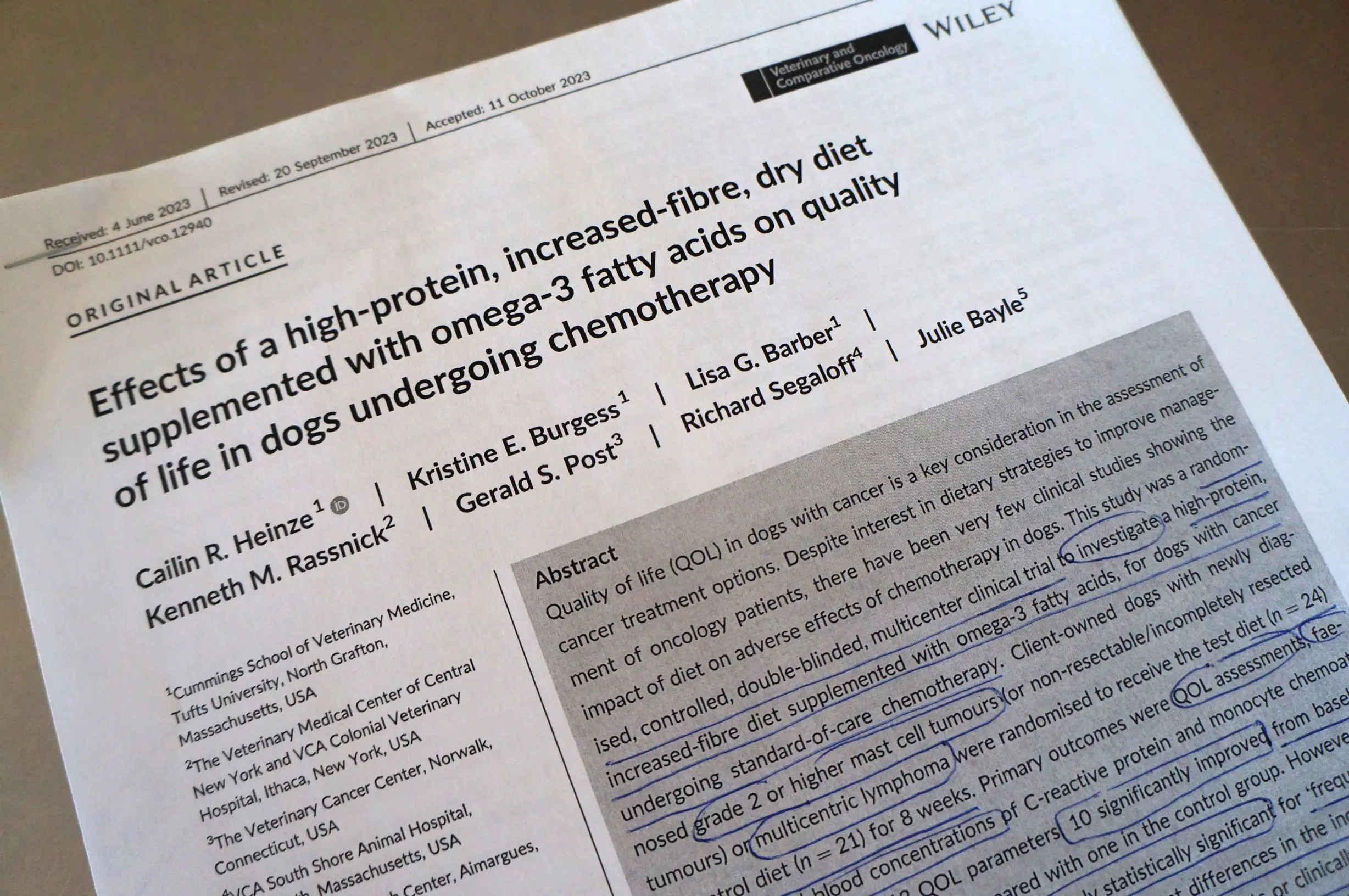
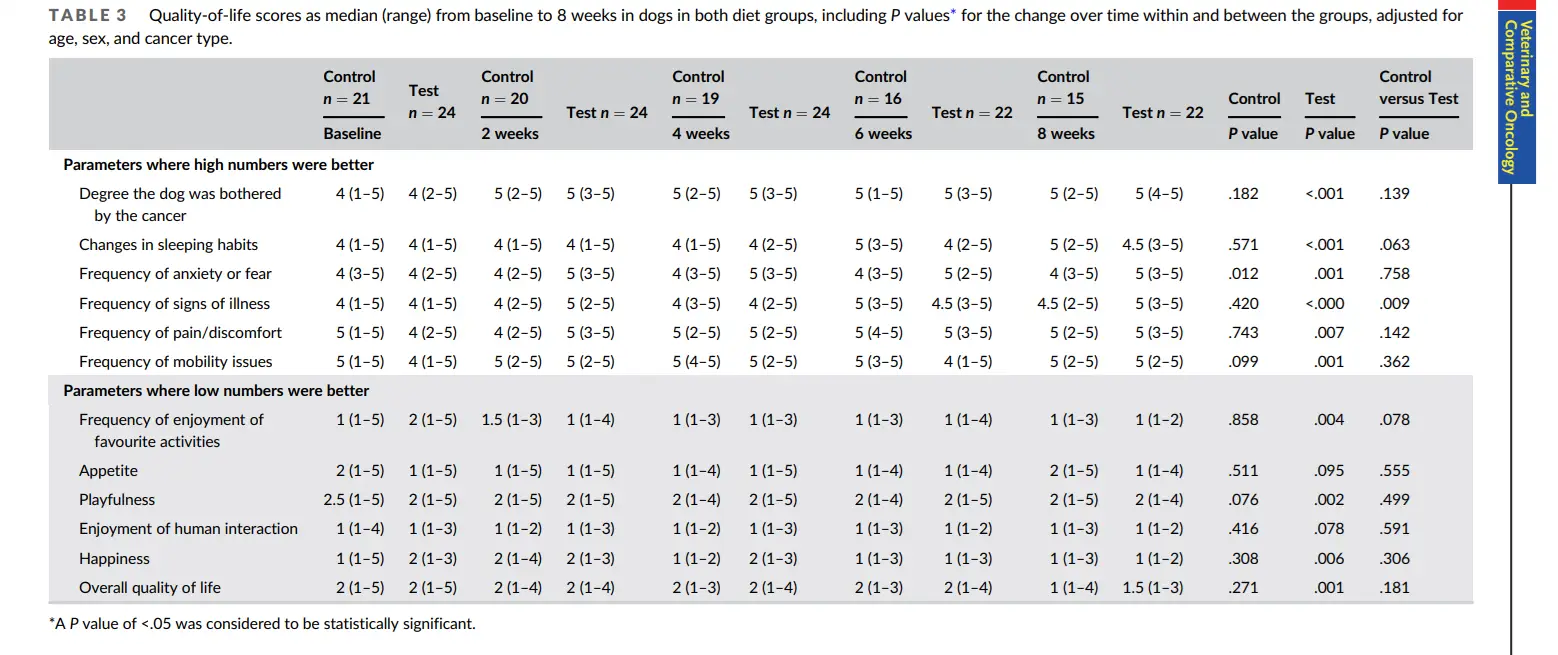
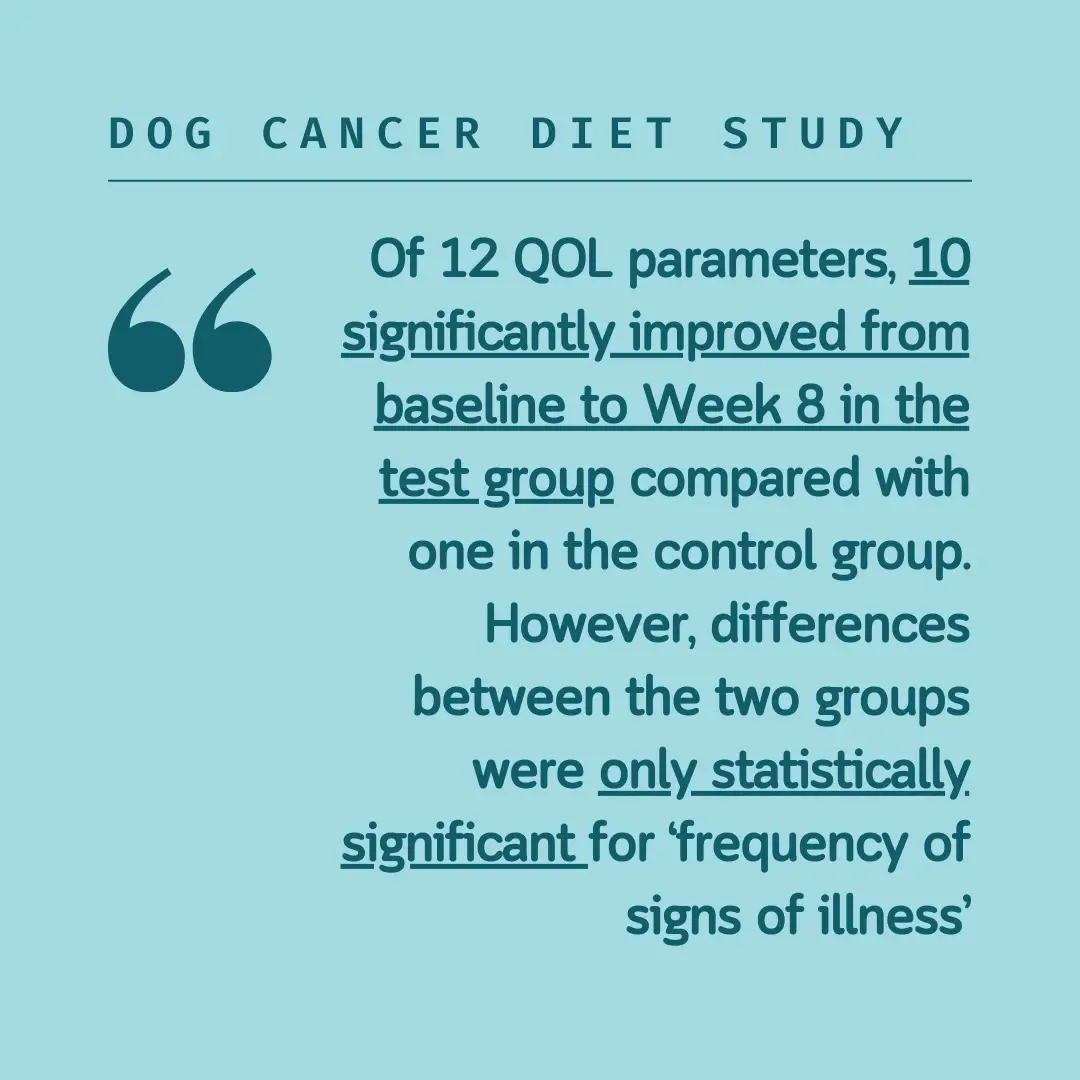
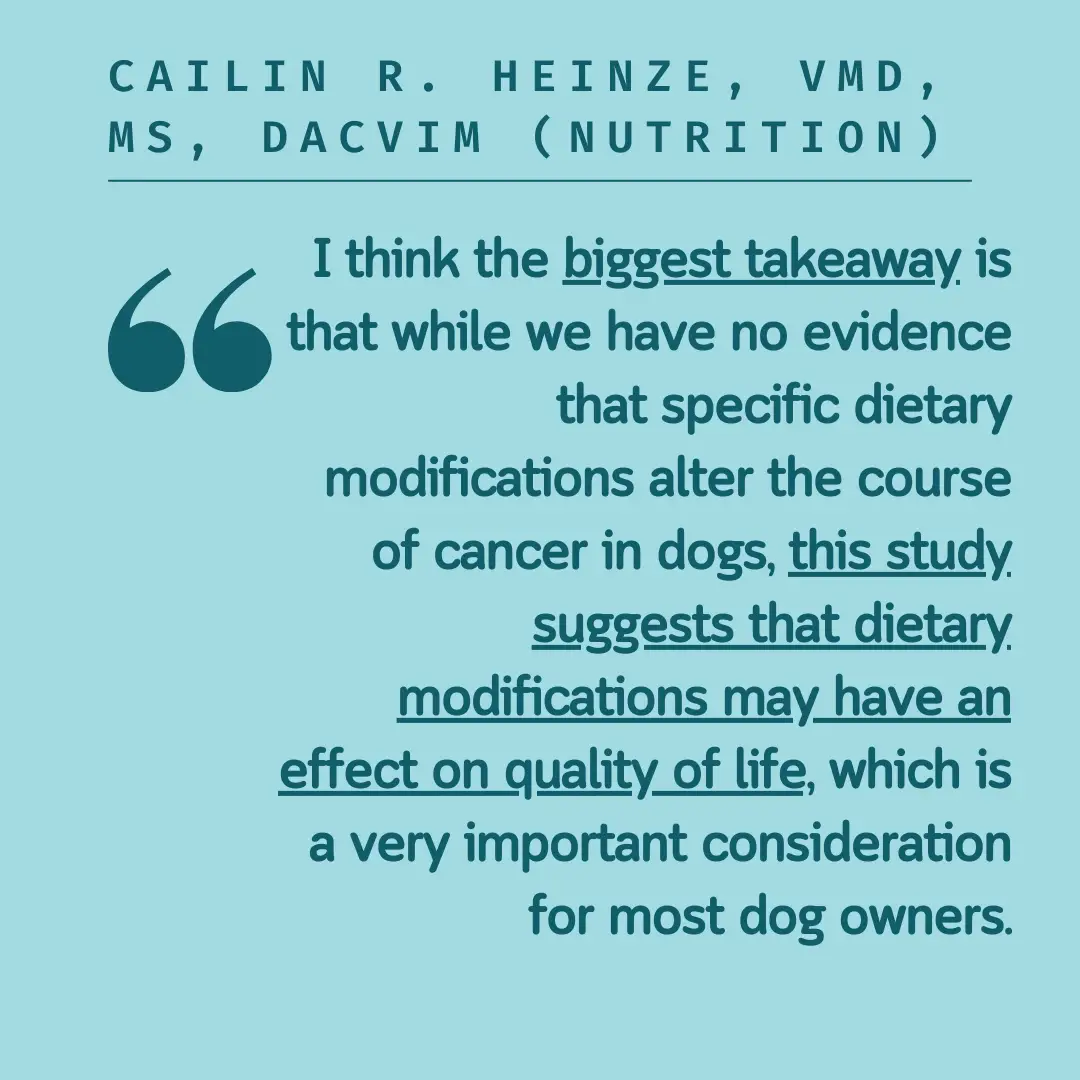
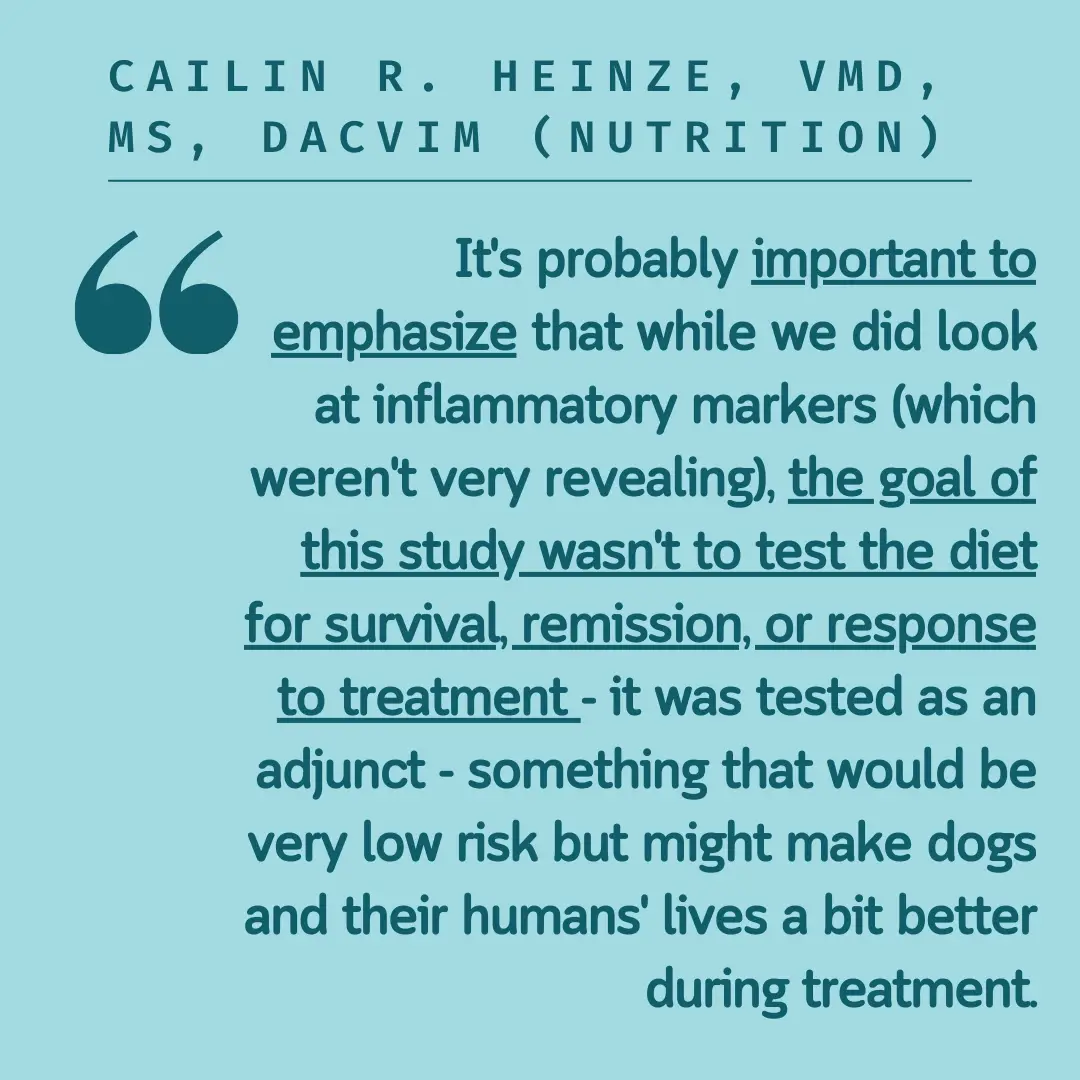
0 comments